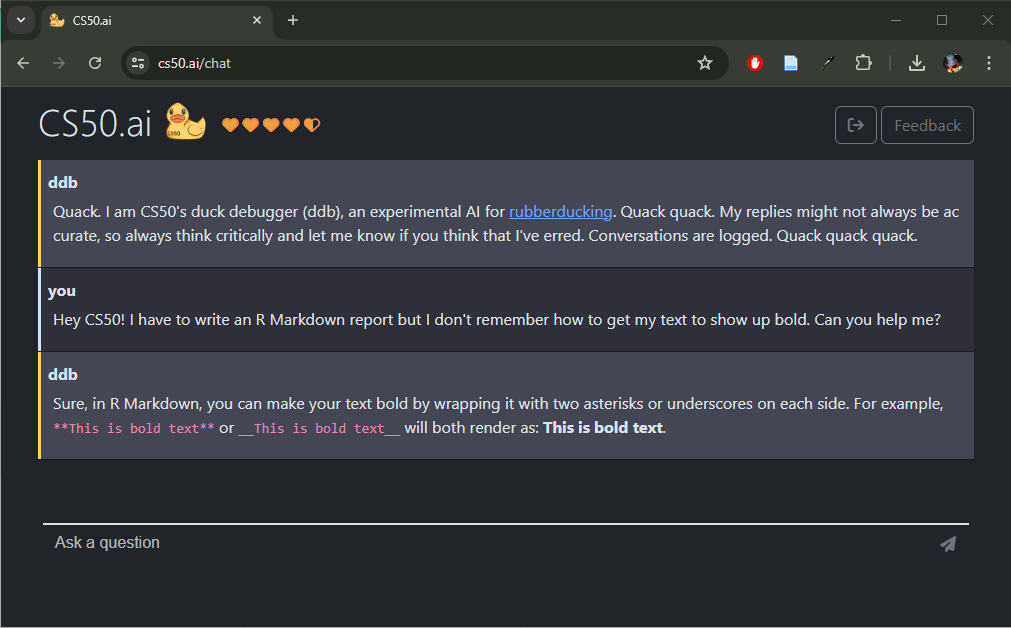Wrap Up
If you have made it this far in the book, you should now posses the tools necessary to tackle most R tasks and more importantly, you should be able to teach yourself new skills.
In these last two Chapters I will share some last pieces of wisdom that may inspire you to keep learning R. you will also find a collection of exercises and quiz questions to review your knowledge and hopefully have fun remembering it! Personally, I got started because I had super talented people to learn from that I am glad to call my friends still today (Tobi, Lukas, Kilian - looking at you guys ).
If you found this book helpful and want to thank me or you have some suggestions or wishes for the future, please write me an email! I hope to keep improving this intro and possibly adding to it, so I would also love to get some contributions!
So, here are my last pieces of wisdom inspired by things I learned and people I met at the useR! conference 2024:
R can be hard.
Which is why it's important to know a couple of tools to make your life easier. Generally, I am hesitant to recommend using AI such as ChatGPT to help with coding, as it can be even more frustrating when this artificial companion suggests code that cannot work, cannot solve your problem, or simply confuses you even more. Therefore, I suggest you have a look at cs50.ai, an AI developed to help with coding troubles by the Harvard university.

... but it's worth it.
R has a steep learning curve at the beginning, which can be frustrating but also means that it will keep getting easier to expand your skills. For everyday use, i.e. calculating statistics and creating visualizations, R is already great. But it is possible to go much further: R has integrations for word processors (you've heard of LaTeX in R Markdown), building websites and apps (Shiny), creating presentations (Quarto) and of course anyone can contribute to the community with new packages. Try to stay curious and see if any of these features might be of use to you at some point! Maybe you need to report a lot of your code and show visualizations in your thesis - why not write it in R Markdown?
R is really fun!
There are many reasons why so many people in so many fields of expertise choose this weird language14 as their primary means of communication. One of them is definitely the powerful yet sometimes completely silly and useless things you can do with it (Thanks to Scott Chamberlain and Amanda Dobbyn for the package!):
Outlook
Keep teaching yourself R - you have a lot of great resources!
And keep an open mind to keep finding cool features, such as the emphatic package, which lets you color rows in tables very easily.
iris |>
group_by(Species) |>
summarize(Mean_Sepal_Length = mean(Sepal.Length)) |>
emphatic::hl(c("purple", "violet", "hotpink"))Species Mean_Sepal_LengthWrap-Up
1 setosa 5.006
2 versicolor 5.936
3 virginica 6.588
- R helps you to get an overview of your data
- R gives your tools for data analysis & visualization
- R lets you create reports, presentations, app dashboards...
- Keep R weird! Do silly things in R!
- Use the slides from this course as templates to learn from.
I highly recommend this lovely talk on keeping R weird by Kelly Bodwin.↩︎